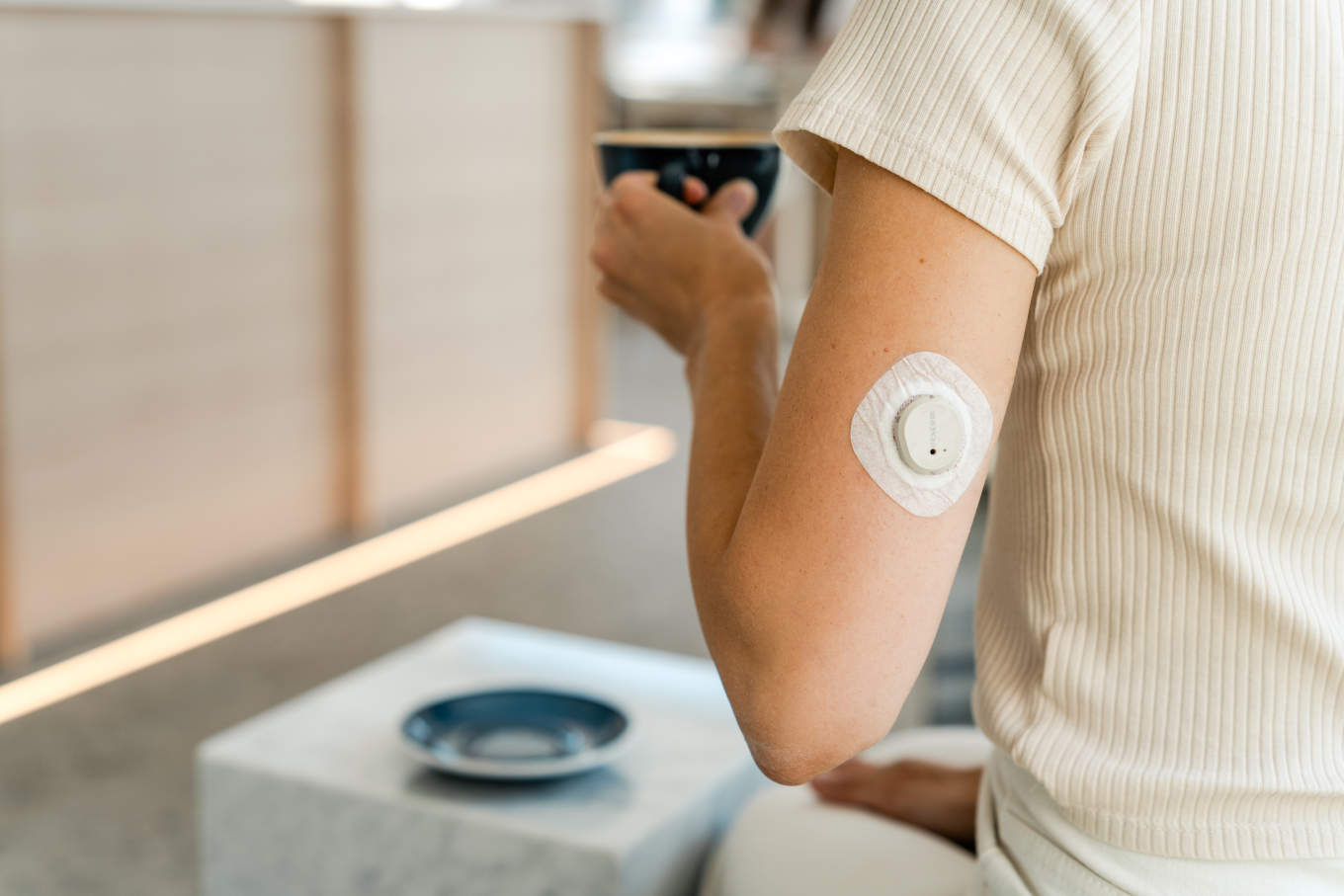Want to get a handle on your glucose? No-prick glucose monitor advances can make everyday life easier
- 2 Minutes Read
A continuous glucose monitor, also called a no-prick glucose monitor, makes testing glucose a whole lot easier!
The system is easy to operate and utilizes Bluetooth technology, requiring three components.
First, you insert a small sensor under your skin (usually on the arm or belly), which measures glucose (sugar) between the cells. The transmitter then sends this information to your continuous glucose monitor (CGM) phone app or a receiver device.
You then receive 2 pieces of information–a glucose number and a trend arrow that provides context to the glucose number, telling where your glucose is headed and how quickly.
The valuable trend arrow feature lets you make corrections sooner. For example, it is easier to catch and treat a dropping blood sugar than one that has reached a dangerously low level.
Note: Since CGMs measure the glucose surrounding cells instead of blood, they lag behind blood glucose values during such rapid glucose changes as right after eating or during exercise. If your symptoms do not match your CGM value, test blood glucose for confirmation.
No-prick glucose monitors are generally accurate within 15-20% of blood glucose meter readings. Research shows that wearing a CGM and engaging with the data can improve your A1C and reduce low blood sugars.
Being able to conveniently see what your glucose is and where it is headed in the next 30 minutes is a substantial quality-of-life improvement for individuals living with diabetes. As the technology has grown in popularity, individuals are exploring no-prick glucose monitors to assist in weight loss and preventing the development of type 2 diabetes.
Also, wearing a CGM and paying attention to the CGM phone app or receiver trends appears to improve time in range. Time in range varies depending on the person, though general guidelines define time in range as 70-180mg/dl. A higher percentage of time in range correlates with a lower A1C. By paying attention, you can see how different foods, exercise, stress, and sleep impact time in range.
Continuous or no-prick glucose monitors that sync with the iOS Health app are compatible with MyNetDiary. This article provides more information on how to set up communication between the MyNetDiary app and your continuous glucose monitor. The Dexcom G6 and Dexcom G7 are both compatible with MyNetDiary.
Whether you invest in using a no-prick, continuous glucose monitor to manage your diabetes or rely on finger sticks, taking ownership of your glucose is key to feeling your best and reducing complications. Testing and interacting with your glucose data are essential to understanding how lifestyle factors such as eating, activity, medications, stress, and sleep impact your readings. Knowledge is power when it comes to your health!
Gain easier control over blood sugar with these diabetes tracking tips from MyNetDiary
Tried and true tips for testing your blood sugar
Factors that affect blood glucose
Still new to MyNetDiary? Learn more today by downloading the app for FREE.
Diabetes->Blood glucose Diabetes->Tracking